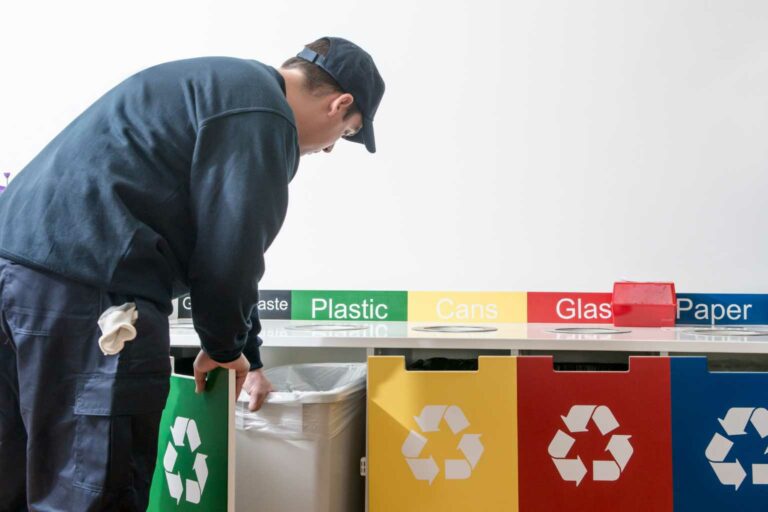
Why Measure Sustainability?
Using data and KPIs to measure sustainability can help companies to set targets, develop action plans and identify areas for improvement.
It follows that this will ultimately help a business to achieve its sustainability goals.
This means that for businesses striving to be more sustainable, measuring progress is critical.
Not only that, it gives a way to provide robust evidence to both customers and stakeholders of a business’s commitment to sustainability.
Here are five crucial KPIs already being used by many to create actionable, sustainable insights.
Educational content written by Carys Burton

5 KPIs to Measure Sustainability
1. Measure your Carbon Footprint
Calculating a carbon footprint is an essential starting point for any business looking to become more sustainable.
By measuring Scopes 1, 2 and 3 of emissions, organisations can assess the exact impact their product and/or services are having.
As a KPI, it can be used to identify areas where emissions need to be reduced.
Furthermore, you can use it to help set targets on the road to net zero.

2. Measure your Energy Usage
Measuring energy usage, whether in offices, warehouses, or factories, is a great KPI to measure sustainability. Businesses can use it to determine where they can begin to implement energy-saving methods.
It follows that this results in cost savings and fewer emissions.
Nowadays, there are many digital tools capable of measuring how much energy is used in different areas and applications.
For example, the industrial internet of things (IIoT) can provide valuable information on production energy consumption.

3. Measure your Waste Reduction
A huge focus for sustainable companies is how they can support and contribute to a circular economy.
Particularly with consumers becoming more conscious of the recyclability and sourcing of their products.
Furthermore, It gives businesses the option to make changes in this area to remain competitive.
Waste reduction and recycling rates can be used as a KPI to track progress and lessen waste production in all areas.
It also means helping contribute to a cleaner, healthier planet.

4. Measure your Supply Chain Miles
Supply chain miles are an often-overlooked aspect of a business’s carbon footprint.
To improve sustainability, companies can track their supply chain miles as a KPI.
Following this, the company can make changes to transportation methods to reduce emissions.
Data on overall supply chain mileage can provide valuable insights for companies to make more informed decisions on sustainable logistics solutions.

5. Measure your Social Impact
Businesses looking to create a brighter, more sustainable future should also consider their social impact.
The specific KPIs you can use to measure social impact will vary for each business.
It also depends on the specific goals it is looking to meet.
Some areas, such as employee welfare, diversity, and inclusion, can be measured directly.
But tackling other social metrics is less straightforward.
For example, measuring improvement in living conditions or creating work opportunities in affected communities requires detailed data and analysis.

Summary - Why Measure Sustainability?
Thankfully, there are many organisations which provide environmental, social, and governance (ESG) reporting. This can provide fantastic insights into the social impacts of a business’s operations.
By using these KPIs, businesses can better understand their impact, identify areas for improvement, and create action plans to help achieve their targets. On top of that, it allows them to show evidence of their sustainable efforts to customers, stakeholders, and investors.
Ultimately, using KPIs to measure sustainability is crucial for businesses looking to stay competitive and positively impact the world around them.
Play It Green can support your business both on its journey of sustainability and its marketing.
From footprint reporting to Net Zero frameworks and Carbon Reduction Plans, we provide the tools to be clear, honest and measured.
Through our 3-step solution, we support footprint reduction and repairing the planet (through reforestation).
Finally, we increase social impact by regiving 10% of our turnover to charity.
That’s a lot of positive impact for £5 per person per month and more value than a coffee and a piece of cake!
You can use the button below to sign up!





